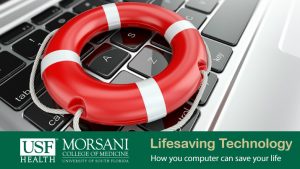Healthcare is one of today’s most in-demand career fields. The healthcare informatics jobs outlook is positive, with a wide number of career options for healthcare and IT professionals and opportunities for others wishing to transition to this growing field.
Growing Demand for Health Informatics Professionals
Since the federal electronic medical records mandate was enacted in 2014, healthcare organizations have been recruiting and hiring skilled health informatics professionals at every level.
For job seekers, HI offers a nearly perfect combination of strong demand, good pay, diversity and room for growth. If you’re interested in breaking into healthcare or advancing from your current healthcare position, now is a great time to start exploring and planning your transition to health informatics.
Your Path to a Health Informatics Career
Careers in health informatics require specialized education; each position will have its own requirements, ranging from a certificate to a master’s degree in health informatics. Your educational path to becoming an HI professional depends on where you are today.
New Career Opportunities for Licensed Medical Professionals
Registered and licensed practical nurses (RNs and LPNs) have a foundation of knowledge that translates well into nursing informatics or clinical informatics. These specialties integrate nursing, computer science and information technology to manage nursing data and patient information, with a goal of improving patient support and decision-making through user-friendly, accurate data systems.
Employers hiring nursing or clinical informaticians often require at least a bachelor of science in nursing (BSN) degree, along with a graduate-level degree or certificate in health informatics. Advancing in this field is possible with additional education and experience. Many nursing informatics professionals choose to obtain a master’s degree in health informatics in order to qualify for positions such as chief medical information officer, health informatics director and healthcare IT project manager.
New Career Opportunities for IT Professionals
The knowledge and skills acquired through an information technology program also translate very well to health informatics. By enrolling in a graduate certificate or master’s degree in health informatics program, you can expand on your current bachelor’s degree in computer science, information technology, database management or information systems while becoming an influential member of the healthcare team.
Career Advancement Opportunities for Health Informatics Professionals
If you’re currently working as a nursing informatics specialist, an HI consultant or an HI technician, you are probably well aware of the career opportunities open to you if you possess the right education and credentials. Progressing into advanced HI positions, such as director of health informatics, clinical data analyst or chief medical information officer often requires a master’s degree.
Graduate degree programs in health informatics are ideal for HI professionals who feel they’ve reached the top of their current position, are interested in learning more about the science and technology behind health informatics, or seek opportunities to earn a higher salary.
The versatility of the health informatics field offers solid opportunities to establish a rewarding healthcare career or advance in your current career path. It’s a great career choice if you want a chance to grow and learn throughout your career in the evolving field of health informatics.
*National long-term projections may not reflect local and/or short-term economic or job conditions, and do not guarantee actual job growth. Information provided is not intended to represent a complete list of hiring companies or job titles, and program options do not guarantee career or salary outcomes. Students should conduct independent research for specific employment information.




